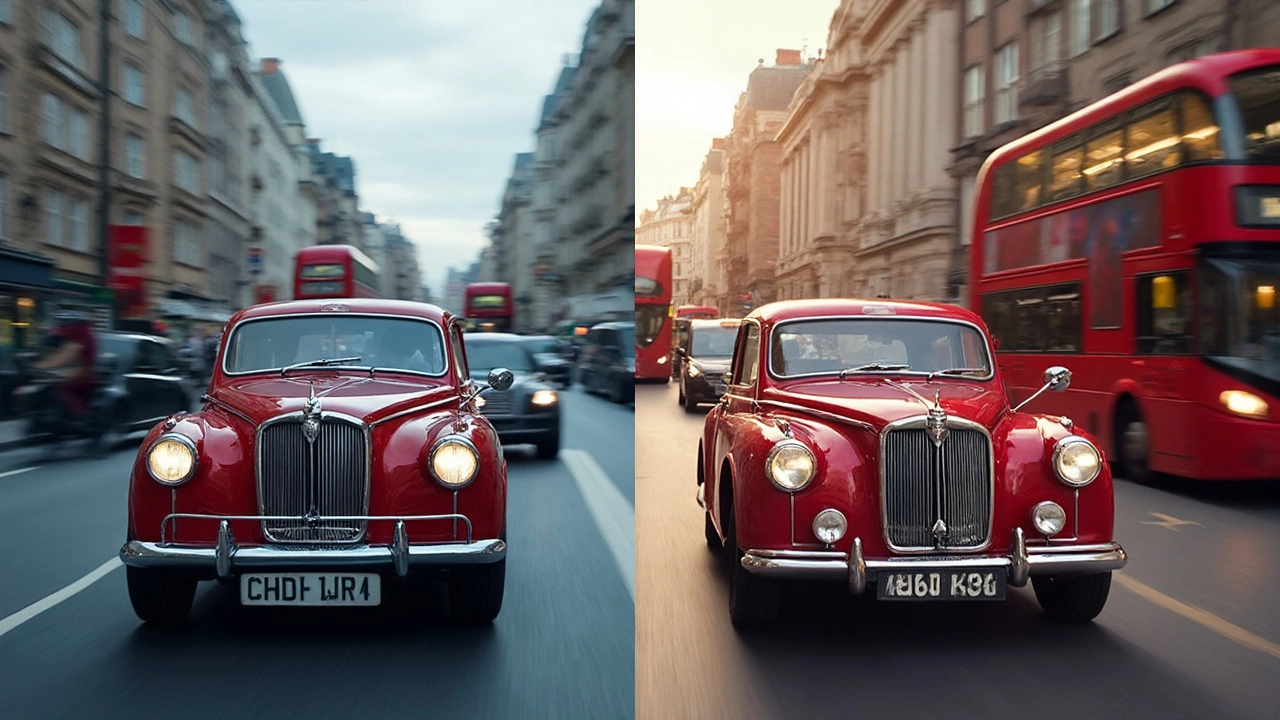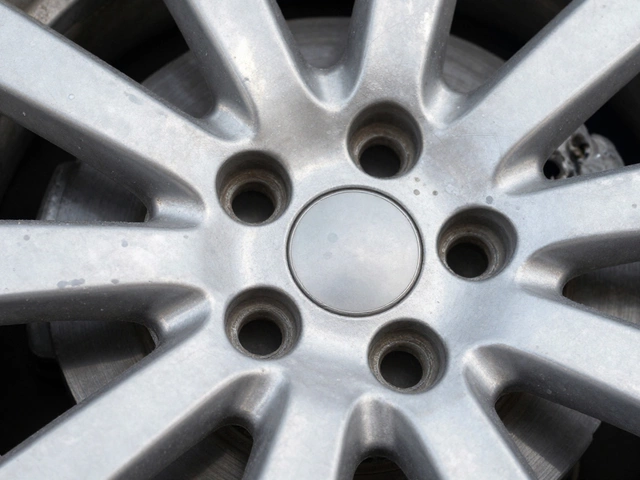Curious if swapping out your car's air filter could save you a few bucks at the pump? You're not alone. Many folks are looking for easy ways to squeeze a little extra fuel efficiency out of their vehicles. One popular option is the performance air filter. But do they really live up to the hype?
Here's the scoop: a performance air filter can indeed help your engine breathe more easily. It's like giving your car a fresh breath of air—literally! Cars need a good mix of air and fuel to run smoothly, and a less restricted air flow can improve combustion efficiency. Sounds great, right?
Now, before you rush to make the swap, keep in mind that the increase in miles per gallon (MPG) is often modest. It varies based on factors like your car model and how you drive. For instance, if you’ve got a lead foot, you might not notice much change at all.
- Understanding Performance Air Filters
- How Air Filters Affect Fuel Efficiency
- Pros and Cons of Performance Air Filters
- Practical Tips for Installing Air Filters
- When to Consider Upgrading Your Filter
Understanding Performance Air Filters
So, what exactly are performance air filters all about? At their core, they’re designed to let your engine breathe better than the standard air filters found in most vehicles. Standard filters can restrict airflow to your engine because they’re often made with paper elements and need changing more frequently.
Performance air filters, on the other hand, are generally made from higher-quality materials like cotton or foam, which allows a greater amount of air to reach the engine. More airflow can lead to better combustion, which can enhance overall engine performance.
Many car enthusiasts upgrade to performance air filters for the promised benefits of increased horsepower, improved throttle response, and yeah, the potential boost in fuel efficiency. However, the extent to which you see these benefits largely depends on your vehicle's make and model.
Let's break down some key characteristics of performance air filters:
- Reusable: Unlike regular filters, the performance ones can be washed and reused. This can save you money over time.
- Longevity: These filters are designed to last longer, sometimes matching your vehicle's lifespan.
- Material: Most are constructed with multiple layers of cotton gauze between sheets of wire mesh.
- Installation: Easily installed in the same slot as regular filters, making them a quick upgrade option for drivers.
It's interesting to note that while performance air filters allow for improved airflow, they must also balance with the filtration quality to protect the engine from harmful debris. That’s where the tough multi-layer design usually comes in handy.
Here's a quick look at some typical performance air filter features:
| Feature | Description |
|---|---|
| Increased Airflow | More air reach boosts potential performance. |
| Durability | Made to withstand repeated cleaning. |
| Improved Horsepower | Possible gain in power output. |
| Cost-effectiveness | Long-term savings on filter replacements. |
So, if you're aiming for better performance and maybe a bump in your mpg, a performance air filter might just be your ride's new best friend. Just make sure it aligns with what your car needs and how you drive it.
How Air Filters Affect Fuel Efficiency
Air filters play a crucial role in your car's engine performance, which directly impacts fuel efficiency. A clean and effective air filter allows an ideal flow of air into the engine, mixing with fuel for combustion. The better this mix, the smoother your engine runs, which can ultimately help you squeeze more miles out of each gallon of gas.
So, how do these performance air filters differ from standard ones? Well, they're designed to allow higher volumes of air to pass through. Think of them as the breathable athletic wear for your car, compared to a standard cotton filter that might feel more restrictive.
A common benefit touted by many users is a boost in horsepower. More air means the engine can burn fuel more efficiently. In some instances, this can translate to a small bump in fuel efficiency — maybe a 2-3% MPG improvement in optimal conditions. That said, don't expect miraculous changes in every scenario.
It's important to keep your specific vehicle and driving habits in mind. Short city drives with frequent stops may not see as much benefit from a performance air filter compared to long highway cruises where the engine can better utilize increased air flow.
Here's a quick rundown of how a dirty versus clean air filter can impact fuel consumption:
| Air Filter Condition | Potential MPG Impact |
|---|---|
| Clean Performance Filter | +2-3% in optimal conditions |
| Dirty Standard Filter | Up to -10% in fuel efficiency |
Before you grab a new filter off the shelf, check the manufacturer's recommendations for your vehicle. Not every car benefits the same way, and paying attention to specific fit and airflow needs can make a big difference.

Pros and Cons of Performance Air Filters
Alright, let's break down the good and the not-so-good about these performance air filters. First up, the pros. A big selling point for these filters is the potential boost in engine power. By allowing more air to flow freely, your engine can gulp down what it needs without restrictions. This can lead to better throttle response and a slight increase in horsepower. It's like your car is getting a breath of fresh air!
Another perk is that these filters are often reusable. Instead of tossing out a dirty filter and buying a new one, you can clean a performance filter and pop it back in. This can save you a few bucks over time and is a win for the environment too. But don’t expect a massive MPG jump—it’s often a modest improvement.
Now, onto the cons. While fuel efficiency might see a bump, the gains can be negligible for regular driving. For severe dust or extremely humid environments, these filters might not provide adequate protection, potentially letting more dirt through.
- Pros: Better throttle response, reusable, slight horsepower increase.
- Cons: Minimal MPG improvement, possible inadequate dirt filtration.
For the data lovers, here's a quick look:
| Pros | Cons |
|---|---|
| Improved throttle response | Potentially less effective filtration |
| Reusable, cost-saving over time | Minimal MPG increase |
| Possible horsepower gains | Not ideal for all environments |
So, before you decide on a performance air filter, weigh these pros and cons. Consider your own driving needs and circumstances—it’s not a one-size-fits-all solution. But for those looking to eke out a bit more from their engine, it might be a worthwhile upgrade.
Practical Tips for Installing Air Filters
So, you're thinking of installing a performance air filter in your ride? It's not as complicated as you might think. Handling it yourself can not only save you money, but also give you a better understanding of your car's inner workings.
First things first—make sure you’ve got the right air filter for your car. Filters come in all shapes and sizes, so double-check the specifications. Got everything sorted? Let's get started!
- Locate the Airbox: Pop the hood and find the airbox, which is usually a black plastic casing sitting near the engine. It contains the current air filter.
- Remove the Old Filter: Open the airbox by unclipping or unscrewing it. Carefully take out the old filter and make a mental note of how it was oriented.
- Inspect the Airbox: Before you pop in the new one, peek inside the airbox for any debris or dirt. A quick wipe with a damp cloth should do the trick if needed.
- Install the New Filter: Place the new performance air filter into the airbox in the correct orientation. Make sure it seals properly around the edges.
- Secure the Airbox: Clip or screw the airbox back shut, ensuring it's nice and snug for a tight seal.
Feeling adventurous? Grab a friend and see if you can knock it out even faster! It's a quick job, but be sure to take care during the installation process to avoid any mishaps.
Still on the fence about the benefits? According to a recent car enthusiast survey, around 60% believed their switch to a performance air filter improved their overall car performance—though MPG gains can be modest.

When to Consider Upgrading Your Filter
So, you're thinking about sprucing up your ride with a performance air filter? Before you jump in, let's talk about when it might be the right time to make the upgrade. Timing can be everything when it comes to maximizing the benefits.
First, consider upgrading if your current air filter is clogged or old. A dirty filter can choke your engine, reducing its efficiency and potentially hurting your fuel efficiency. Regularly changing your air filter can make a noticeable difference.
Another good time to think about switching to a performance air filter is if you drive in areas with high dust levels or frequent off-road conditions. These environments increase debris intake, and a high-quality filter can help your engine breathe cleaner air.
- Check your vehicle's manual. Some car manufacturers recommend more frequent changes based on driving conditions.
- Listen to your engine. If it’s sputtering or you notice reduced acceleration, a clogged filter may be the culprit.
- Track your gas mileage. Sometimes a drop in MPG signals it’s time for a filter change.
Lastly, if you're someone who enjoys getting under the hood and tweaking your car for better performance, a performance air filter can be a fun and relatively easy upgrade to try. It might not turn your grocery-getter into a sports car, but every bit of performance enhancement helps!






